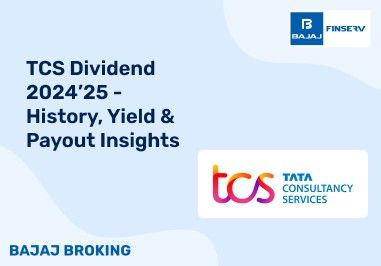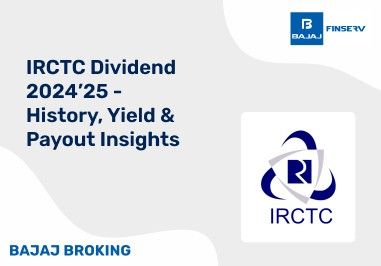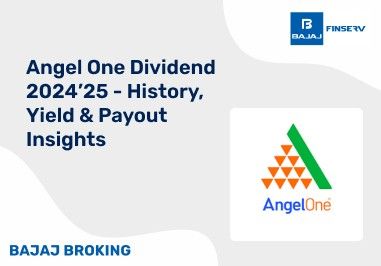BAJAJ BROKING
Tankup Engineers IPO is Open!
Open a Free Demat Account
Trade Now, Pay Later with up to 4x
Track Market Movers Instantly
What Is Buy-in?
Blog Summary
- 1What is Buy-In Meaning?
- 2Define Buy-Ins and How They Work
- 3What is Buy-In the Meaning in the Stock Market?
- 4How Buy-In Stock Auction Works
- 5What Is a Forced Buy-In and How Is It Different From a Regular Buy-In?
- 6How Long Does It Take for Securities Transactions to Settle?
- 7What Happens If the Securities Are Not Delivered on Time?
- 8Final word
What is Buy-In Meaning?
Buy-in is a term that has different meanings in the financial markets. One meaning is when an investor has to buy back the shares of a security that they sold short because the original seller did not deliver them on time or at all. This is a risk that short sellers face when they bet against a security.
Another meaning of buy-in is when someone agrees to purchase shares or a stake in a company or an asset. This can be a way of investing in a business or becoming a partner. Buy-in also refers to the psychological process of accepting and supporting an idea or concept that is not one’s own but still appeals to them.
Also Read: How To Apply Buyback of Shares?
Define Buy-Ins and How They Work
When a seller does not deliver the securities as agreed, they usually receive a buy-in notice. This is a warning from the buyer that they will contact the exchange officials to report the delivery failure. The exchange officials will then inform the seller of their obligation to deliver the securities. The exchange (e.g., NASDAQ or NYSE) will help the buyer to buy the securities again from a different seller. The original seller will have to pay for any difference between the first and second price of the securities. If the seller ignores the buy-in notice, a broker will step in and buy the securities for the buyer. The buyer will then have to repay the broker at a fixed price.
What is Buy-In the Meaning in the Stock Market?
Market buy-in is a term that refers to a situation where an investor has to buy back the shares that they ordered because the original seller did not deliver them on time or at all.
In some global stock markets, like the New York Stock Exchange (NYSE), the buyer has the right to replace the original transaction with the help of a third-party or a buy-in agent. The buy-in agent will buy and deliver the shares for the buyer. Alternatively, the buyer can receive a buy-in notice from the exchange and buy the shares from another seller directly. In India, however, the stock exchanges – National Stock Exchange (NSE) and the Bombay Stock Exchange (BSE), have a different process of buy-in stock auction. The exchange will auction the shares to third parties at competitive rates on behalf of the buyer.
Market buy-in can also mean when someone agrees to buy shares or a stake in a company or an asset. This can be a way of investing in a business or becoming a partner. Market buy-in also refers to the psychological process of accepting and supporting an idea or concept that is not one’s own but still appeals to them.
Also Read: Volume in the Share Market
How Buy-In Stock Auction Works
Both NSE and BSE follow the Trading+2 (T+2) rolling settlement system. This means that the transactions done on a certain day are settled within two working days. If the seller fails to deliver the shares, or delivers less than ordered, the exchange will conduct a buy-in stock auction. The auction will take place on the T+2 day itself, while the auction settlement will be done on the third (T+3) working day.
When the exchange announces an auction, traders and brokers can participate by bidding for the short position. If the auction is successful, the buyer will receive the shares and the seller will have to pay the auction price plus brokerage fees. The seller may also face a fine. However, if the auction is unsuccessful, the buyer will get a full refund. The seller will then have to pay the higher of these two:
The highest current market price on the trading day
OR
20% more than the closing market price of the share on the previous trading day
What Is a Forced Buy-In and How Is It Different From a Regular Buy-In?
A forced buy-in is a type of buy-in that happens when a short seller has to buy back the shares they borrowed and sold. A short seller is someone who bets that the price of a security will go down. They borrow the shares from a lender and sell them in the market, hoping to buy them back later at a lower price and return them to the lender. A forced buy-in occurs when the lender wants the shares back or when the broker cannot find more shares to lend to the short seller. Sometimes, the short seller may not even get a warning before a forced buy-in. A forced buy-in is the opposite of forced selling or forced liquidation, which is when an investor has to sell their securities because of margin calls or other reasons.
How Long Does It Take for Securities Transactions to Settle?
Securities transactions are usually settled in T+2 business days, which means two business days after the transaction date (T=0). This applies to most securities, such as stocks and corporate bonds. Some transactions are settled in T+1 business day, while others can be settled on the same day as the transaction date. These are called cash trades.
What Happens If the Securities Are Not Delivered on Time?
If the securities are not delivered on time, a buy-in will occur. This means that the buyer will have to buy the securities again from another seller, with the help of the exchange (e.g., NASDAQ or NYSE). The original seller will have to pay for any difference in price between the first and second purchase. If the original seller does not respond to the buy-in notice, a broker will buy the securities for the buyer and charge them a fixed price.
Final word
Before you start trading in the stock market, you need to have a good understanding of how it works and what are the risks and opportunities involved. You can rely on a trusted financial partner to provide you with comprehensive market reports, the latest stock market updates, and sound financial advice.
Share this article:
Read More Blogs
Disclaimer :
The information on this website is provided on "AS IS" basis. Bajaj Broking (BFSL) does not warrant the accuracy of the information given herein, either expressly or impliedly, for any particular purpose and expressly disclaims any warranties of merchantability or suitability for any particular purpose. While BFSL strives to ensure accuracy, it does not guarantee the completeness, reliability, or timeliness of the information. Users are advised to independently verify details and stay updated with any changes.
The information provided on this website is for general informational purposes only and is subject to change without prior notice. BFSL shall not be responsible for any consequences arising from reliance on the information provided herein and shall not be held responsible for all or any actions that may subsequently result in any loss, damage and or liability. Interest rates, fees, and charges etc., are revised from time to time, for the latest details please refer to our Pricing page.
Neither the information, nor any opinion contained in this website constitutes a solicitation or offer by BFSL or its affiliates to buy or sell any securities, futures, options or other financial instruments or provide any investment advice or service.
BFSL is acting as distributor for non-broking products/ services such as IPO, Mutual Fund, Insurance, PMS, and NPS. These are not Exchange Traded Products. For more details on risk factors, terms and conditions please read the sales brochure carefully before investing.
Investments in the securities market are subject to market risk, read all related documents carefully before investing. This content is for educational purposes only. Securities quoted are exemplary and not recommendatory.
For more disclaimer, check here : https://www.bajajbroking.in/disclaimer
Our Secure Trading Platforms
Level up your stock market experience: Download the Bajaj Broking App for effortless investing and trading













